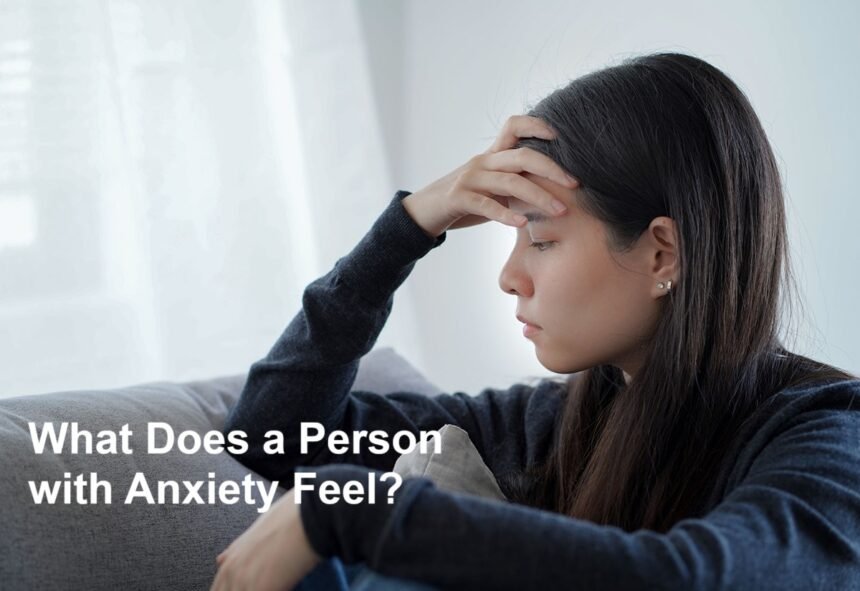Introduction
Anxiety is a common mental health condition that affects millions of people worldwide. While it’s often misunderstood or conflated with general stress, anxiety is a complex and sometimes overwhelming experience that significantly impacts a person’s emotional, physical, and mental well-being. But what exactly does someone with anxiety feel? Understanding these sensations can foster empathy and help bridge the gap between sufferers and their loved ones.
The Emotional Experience
At its core, anxiety manifests as a persistent sense of worry or fear. People with anxiety often feel an ongoing or overwhelming sense that something bad is about to happen, even when there’s no clear threat. This constant anticipation can lead to feelings of dread, unease, and a sense of impending doom.
Many individuals describe feeling excessively nervous or anxious about everyday situations, such as social interactions, work, or personal responsibilities. These feelings are not just fleeting; they can persist for hours, days, or even months. Sometimes, anxiety can escalate into panic attacks—sudden, intense episodes of fear that can be terrifying and disorienting.
The Physical Sensations
Anxiety doesn’t just affect the mind; it also causes a range of physical symptoms. These manifestations can be highly distressing and often mimic signs of other medical conditions, making anxiety difficult to recognize immediately.
Common physical feelings include:
- Increased Heart Rate: A racing or pounding heart, often accompanied by palpitations.
- Shortness of Breath: Difficulty taking in air or feeling suffocated, which may lead to hyperventilation.
- Sweating: Excessive sweating, even in cool environments.
- Trembling or Shaking: Uncontrollable shivers or muscle twitches.
- Gastrointestinal Issues: Nausea, stomachaches, or a feeling of butterflies in the stomach.
- Dizziness and Lightheadedness: Feeling faint or unstable, sometimes accompanied by a sensation of tingling or numbness.
- Muscle Tension: Persistent stiffness or aching muscles, especially in the neck, shoulders, or jaw.
These symptoms can be relentless and may cause a person to avoid certain situations or environments that trigger their anxiety.
The Cognitive Impact
People with anxiety experience a heightened state of alertness and often have racing thoughts. These thoughts tend to focus on worst-case scenarios, fears, or catastrophic outcomes, even if they are unlikely. This mental hyperactivity can make it difficult to concentrate, relax, or enjoy the present moment.
In some cases, anxiety can lead to significant mental fatigue, as the brain is constantly working to anticipate danger or problem-solve. Rumination—repetitive, negative thinking—is common and can exacerbate feelings of hopelessness or despair.
The Behavioral Effects
Anxiety can influence behavior in various ways. Many sufferers develop avoidance behaviors to reduce their distress, such as avoiding social gatherings, public places, or situations they perceive as threatening. This avoidance, though understandable, can lead to social isolation and limit life experiences.
Some individuals resort to compulsive behaviors or rituals to temporarily relieve their anxiety. These actions, often seen in obsessive-compulsive disorder (OCD), include excessive hand-washing, checking, or repeating actions.
The Impact on Daily Life
The feelings of anxiety are not just momentary discomforts; they can profoundly affect a person’s daily life. Routine tasks like grocery shopping, attending work meetings, or even leaving the house can become daunting. For some, anxiety causes sleep disturbances, leading to fatigue and further emotional instability.
Recognizing Anxiety in Yourself or Others
You might notice someone exhibiting signs of anxiety if they frequently appear tense, nervous, or irritable. They may complain of being unable to relax, experiencing rapid heartbeat, or avoiding social interactions. If someone confesses feeling overwhelmed by fears or doubts, they could be dealing with anxiety.
Final Thoughts
Anxiety is a multi-faceted experience that touches every aspect of a person’s life. It involves intense emotional distress, physical symptoms, and cognitive challenges. Understanding what a person with anxiety feels can foster compassion and patience, enabling supportive environments where sufferers feel safe to seek help.
If you or someone you know struggles with anxiety, know that help is available. Therapy, medication, and self-care strategies can significantly reduce symptoms and improve quality of life. Remember, anxiety is common, and with proper support, it can be managed effectively.












